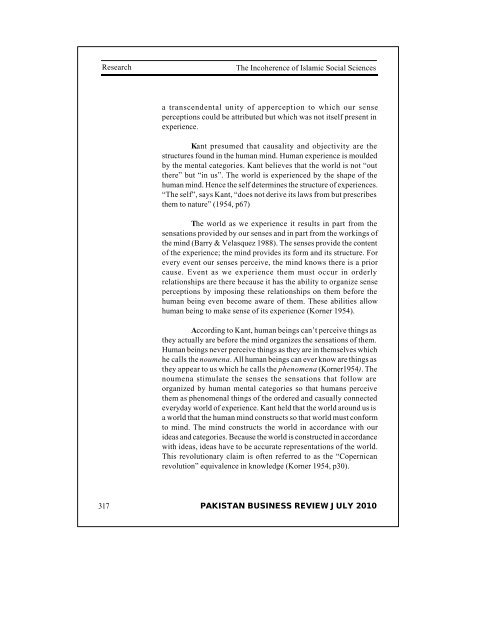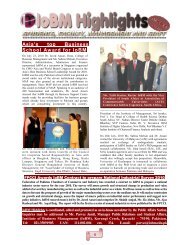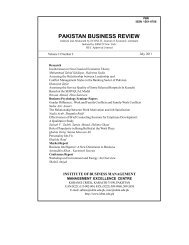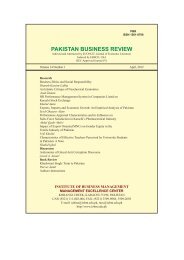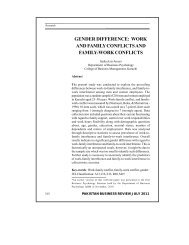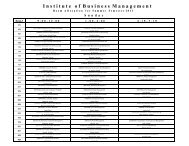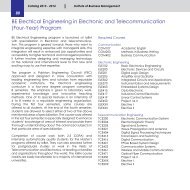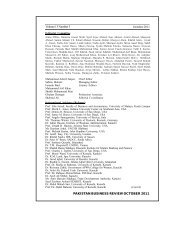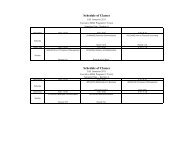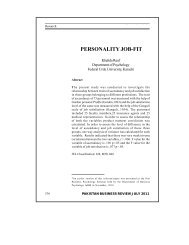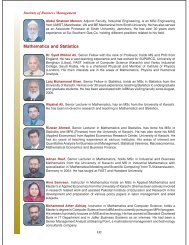Complete Volume - Institute of Business Management
Complete Volume - Institute of Business Management
Complete Volume - Institute of Business Management
Create successful ePaper yourself
Turn your PDF publications into a flip-book with our unique Google optimized e-Paper software.
Research<br />
The Incoherence <strong>of</strong> Islamic Social Sciences<br />
a transcendental unity <strong>of</strong> apperception to which our sense<br />
perceptions could be attributed but which was not itself present in<br />
experience.<br />
Kant presumed that causality and objectivity are the<br />
structures found in the human mind. Human experience is moulded<br />
by the mental categories. Kant believes that the world is not “out<br />
there” but “in us”. The world is experienced by the shape <strong>of</strong> the<br />
human mind. Hence the self determines the structure <strong>of</strong> experiences.<br />
“The self”, says Kant, “does not derive its laws from but prescribes<br />
them to nature” (1954, p67)<br />
The world as we experience it results in part from the<br />
sensations provided by our senses and in part from the workings <strong>of</strong><br />
the mind (Barry & Velasquez 1988). The senses provide the content<br />
<strong>of</strong> the experience; the mind provides its form and its structure. For<br />
every event our senses perceive, the mind knows there is a prior<br />
cause. Event as we experience them must occur in orderly<br />
relationships are there because it has the ability to organize sense<br />
perceptions by imposing these relationships on them before the<br />
human being even become aware <strong>of</strong> them. These abilities allow<br />
human being to make sense <strong>of</strong> its experience (Korner 1954).<br />
According to Kant, human beings can’t perceive things as<br />
they actually are before the mind organizes the sensations <strong>of</strong> them.<br />
Human beings never perceive things as they are in themselves which<br />
he calls the noumena. All human beings can ever know are things as<br />
they appear to us which he calls the phenomena (Korner1954). The<br />
noumena stimulate the senses the sensations that follow are<br />
organized by human mental categories so that humans perceive<br />
them as phenomenal things <strong>of</strong> the ordered and casually connected<br />
everyday world <strong>of</strong> experience. Kant held that the world around us is<br />
a world that the human mind constructs so that world must conform<br />
to mind. The mind constructs the world in accordance with our<br />
ideas and categories. Because the world is constructed in accordance<br />
with ideas, ideas have to be accurate representations <strong>of</strong> the world.<br />
This revolutionary claim is <strong>of</strong>ten referred to as the “Copernican<br />
revolution” equivalence in knowledge (Korner 1954, p30).<br />
317<br />
PAKISTAN BUSINESS REVIEW JULY 2010


